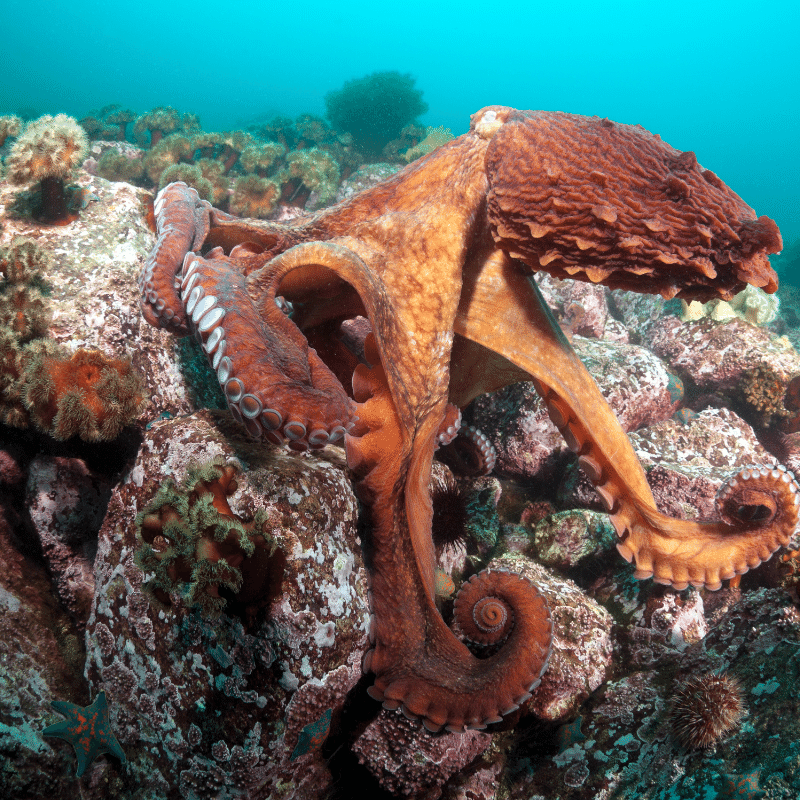Lords of the Sea: The Giant North Pacific Octopus
In our regular blog feature, Lords of the Sea, we look at the apex predators of the sea - those species who are generally top of their respective food chains. Today, we profile the North Pacific Giant Octopus, Enteroctopus dofleini.
The largest species of octopus in the world - in 1967 one was discovered measuring 23 feet (7 metres!) from tentacle tip to tentacle tip!
Also known as the North Pacific Giant Octopus, Enteroctopus dofleini is a large marine cephalopod commonly distributed along coastal California, Washington, Alaska, Russia, Japan and Korea.
The octopus has two rows of suckers on each of its eight arms, lined with papillae or hooks for adhesion. The web between the arms expands to form a parachute-like structure to capture prey. In the centre of its arms is its mouth, which contains its beak and radula (toothed-tongue)
All cephalopods have a paralytic and digestive toxin in two salivary glands to aid in consuming prey. Water is pulled into the mantle and over gills or lamellae for oxygen uptake, and can be ejected forcefully through the siphon for jet propulsion. They are able to reach speeds up to 25 mph for short sprints. They tend to use their arms as legs, and slowly crawl along the bottom. They are excellent at camouflage, blending in with sea debris. If it is in seaweed, it will often take on its colour, and sway in time with it.
The giant pacific octopus typically preys upon shrimp, crabs, scallop, cockles, snails, clams, lobsters, fish, and other octopuses.
Unlike smaller cephalopods, it is not known to have any observed predators, other than us humans, who regularly catch them for consumption. Although its eggs are often preyed upon, the Giant Pacific Octopus is top of its line.
It is best adapted to cold, oxygen rich water. Lifespan is typically around 3-5 years.

Photo credit: Kichigin (Canva Pro Licence)





